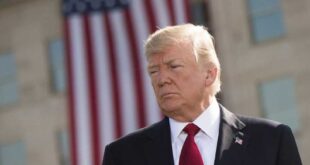Diana Casey
In a significant diplomatic encounter on August 19, 2024, Zhao Leji, the Chinese legislator and Chairman of the NPC Standing Committee, met with To Lam, the Vietnamese President and General Secretary of the CPCCC, in Beijing. This high-level meeting marked a pivotal moment in Southeast Asian politics, signaling a strategic effort by both nations to enhance their bilateral relations and lay the groundwork for a broader cooperative vision. The implications of this partnership are profound, influencing regional stability, economic integration, and global geopolitical dynamics.
The core of the Zhao-To Lam meeting was the discussion of developing a “China-Vietnam community with a shared future.” This concept is more than just a diplomatic slogan; it represents a strategic alliance between two nations with aligned interests, poised to reshape regional relationships. Strengthening ties with Vietnam is not solely about bilateral relations for China—it’s a calculated move to bolster its strategic position in Southeast Asia, a region of increasing significance on the global stage.
Vietnam, with its rapidly growing economy and strategic location along key sea lines of communication, holds both economic potential and geopolitical importance for China. By fostering a sense of shared purpose and building a common vision, China aims to more firmly anchor Vietnam within its broader regional agenda, which includes initiatives like the Belt and Road Initiative (BRI). For Vietnam, this partnership presents an opportunity to leverage China’s economic power while maintaining a delicate balance in a region increasingly influenced by external forces.
One notable aspect of the meeting was the focus on legislative coordination. Zhao Leji’s efforts to enhance exchanges between the NPC and Vietnam’s National Assembly underscore the often-overlooked yet vital role of legislative diplomacy in interstate relations. Parliamentary cooperation can transform strategic partnerships into actionable policies, ensuring that bilateral commitments are reflected in legal frameworks. For China and Vietnam, strengthening legislative ties means not only deepening their relationship but also enhancing their capacity to address shared challenges, from economic growth to regional security.
The economic implications of the China-Vietnam partnership are significant. As a participant in China’s BRI, Vietnam stands to benefit from increased infrastructure, trade, and connectivity. This economic integration aligns with China’s strategy of using economic power to expand its influence, while Vietnam gains essential infrastructure and investments. However, Vietnam must also navigate the complexities of managing its foreign relations, protecting its independence and sovereignty, and balancing its interactions with other global powers like the United States and India. The ongoing South China Sea dispute remains a contentious issue that both nations must balance even as they pursue deeper economic and strategic cooperation.
The China-Vietnam partnership is evolving amid an intensifying great power rivalry in Southeast Asia. As China flexes its muscles in the region, the United States and its allies watch with growing concern. Vietnam, while benefiting from China’s influence, must also seek counterbalances to avoid becoming overly dependent on any single nation. The success of this partnership will depend on how effectively both countries manage these geopolitical pressures and coordinate their bilateral relations.
The historical context of China-Vietnam relations adds another layer of complexity to their current partnership. The two countries share a long and sometimes contentious history, dating back to colonial times. This shared history can be both a source of tension and a foundation for deeper cooperation. By addressing past grievances and focusing on future objectives, China and Vietnam can strengthen their partnership and contribute to a more stable and productive regional climate.
The recent meeting between Zhao Leji and To Lam represents a significant step in promoting a strong and strategic relationship between China and Vietnam. This evolving partnership will continue to shape the “community with a shared future” that both nations envision, grounded in stability, growth, and regional influence. As they pursue their strategic objectives, China and Vietnam will play a critical role in shaping the future of Southeast Asia and influencing global geopolitical dynamics.
Economic integration, legislative diplomacy, and international relations are emerging as key pillars of contemporary diplomacy, and the evolving Sino-Vietnamese relationship encapsulates these elements. The international community will closely watch how China and Vietnam leverage their strategic agreements to achieve tangible outcomes. Looking ahead, the future of Sino-Vietnamese relations will not only determine the trajectory of both nations but also have far-reaching implications for the region and the world.
 Geostrategic Media Political Commentary, Analysis, Security, Defense
Geostrategic Media Political Commentary, Analysis, Security, Defense





